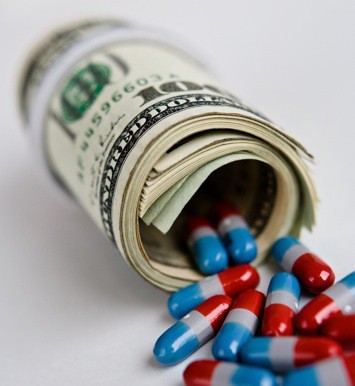Monthly Archives: November 2017
Barcode Hacking
Slides from my 2008 presentation on Barcode Hacking
Disillusionment with the Medical Industry
Child-like Naivety
We all grow up with the idea that to be truly successful in life you need a professional job like that of a lawyer or doctor. MD’s (Medical Doctors) are highly respected, not only for the important life-saving work that they do, but also in part due to the many years of study and training that they receive. There is the inherent assumption that they hold all the knowledge and all the answers to our health problems, and it is unthinkable for the rest of us mere mortals to question them. In recent years, however, I have become increasingly disturbed by the way in which MD’s practice medicine. Having studied naturopathy, I realise that there are many very basic things that these doctors do not seem to realise.
I am not saying, however, that one should not go see your local physician when sick. There are many times when it is completely necessary. However, I am convinced that in the vast majority of cases where people go to see MD’s with common or chronic conditions (such as hypertension, high cholesterol, respiratory infections, and so on), the treatment offered is damaging and does not address the underlying cause.
Conspiracy!
I have never been one for conspiracy theories, but the more I learn about how the whole medical industry operates, the more I feel like I am living in a twisted alternate reality.

When one starts examining the standard treatment for various chronic diseases by MD’s, you start realising that conventional medicine treats these cases by suppressing natural physiological processes to eliminate symptoms, rather than addressing the underlying cause. For infection, they suppress the immune response which results in the symptoms of inflammation and mucus production. For high blood pressure, they suppress the ACE enzymes. For high cholesterol, they suppress the HMG-CoA reductase enzyme. For diabetes, they suppress glucose production by the liver. Surely for infection, you would want to use an antimicrobial? Surely for high blood pressure, you would want to correct the diet and increase exercise? Surely for high cholesterol, you would want to support liver health and correct a problematic diet? Surely for diabetes, you would want to control sugar intake and support the pancreas and balance insulin sensitivity? So why does conventional medicine work in this way? Or at the very least, why not a combination of suppressing symptoms as well as supporting healthy processes?
To understand this, let us consider the training of MD’s. The most widely published medical textbooks are referred to as the Merck Manuals. These are available in a wide array of languages and are seen as the gold standard in medical care. Such an important resource for doctors should surely be produced by a leading university, or perhaps some international health organisation such as the World Health Organisation (WHO). One might think this, but one would be wrong. Oh so wrong. In fact, the Merck Manuals are published by Merck & Co, one of the largest pharmaceutical companies in the world. Now, perhaps that makes sense, that a pharmaceutical company would publish a book about pharmaceutical medicine. However, imagine all Engineers were trained using textbooks published by a certain concrete manufacturer. Would it not be in that concrete manufacturer’s best interest to convince the engineers that concrete is much better than wood or steel for almost all structures? After all, the more engineers that choose concrete over other building materials would result in more money in the concrete company’s pocket. But this doesn’t mean that the structures are built in the best way possible. Isn’t the same conflict of interest present in a pharmaceutical company teaching doctors how to treat disease?
“Start ’em young!”

The most common reason children are seen by a paediatrician is for otitis media (ear infections). This is something that will usually resolve by itself within 2 weeks. Despite this, high doses of antibiotics are almost always prescribed and sometimes surgical options are considered for recurrent infections. This is despite much research showing that antibiotic use is no more effective than bed rest and the well-established fact that frequent prescription of antibiotics leads to the development of antibiotic-resistant strains of bacteria. In fact, the use of antibiotics is much more damaging in most cases than bed rest, as it can lead to dysbiosis within the digestive system (where most of our immune system resides), never mind the superbug apocalypse.
But how would Merck and other such companies make money if doctors just prescribed bed rest? That is simply ridiculous!
War of the Patents
You see, pharmaceutical companies rely on patented drugs to make them money, as this offers them a kind of monopoly for a few years on a particular type of treatment, before other companies are then allowed to develop generics at a reduced cost (due to increased competition). Unfortunately for the pharmaceutical industry, it is almost impossible to patent a natural product. And so, when there is a competing viable treatment using plants that any old person can just go and grab off the hillside, why would Merck mention something like that in their textbook rather than promote their drug which treats the same disease, but also makes them rich?
I think the majority of people have a strong belief that natural medicine is something almost mystical, without scientific proof, and is thus relegated to the realms of druids and hill-folk. Whilst I completely agree that there is an unfortunate amount of con-artistry and mysticism amongst alternative medical practitioners, this does not equate to there being no evidence to support herbal and botanical medicine. That is like saying “because there are so many manufacturers of imitation designer clothes, the whole fashion industry is a sham”. Such a statement would be ludicrous.
Metformin verse Goldenseal

Take, for example, the drug Metformin by BMS which is often used to control blood sugar levels in patients with diabetes type 2. It comes with a host of side effects, as is common in the chronic medication of this kind. Now let’s contrast this with the humble plant Hydrastis canadensis, commonly known as Goldenseal. This plant contains a molecule known as Berberine, which has been extensively researched. In 2009, Yin et al. published a study in which they compared the use of Metformin with Berberine for the treatment of diabetes type 2. They report that:
Compared with metformin, berberine exhibited an identical effect in the regulation of glucose metabolism, such as HbA1c, FBG, PBG, fasting insulin and postprandial insulin. In the regulation of lipid metabolism, berberine activity is better than metformin. By week 13, triglycerides and total cholesterol in the berberine group had decreased and were significantly lower than in the metformin group (P<0.05).
One need just search PubMed for “berberine diabetes mellitus” to realise that this is not an isolated study.
So why are diabetic patients not told about this by their family physicians and endocrinologists? I think there are a number of reasons. Firstly – and most simply – these MD’s are just not aware of the research into natural medicine. The field of medicine is huge, and there is so much research being generated, that it is almost impossible for doctors to keep up with all the relevant research from all sub-disciplines. Secondly, MD’s are not taught about natural medicine, and their textbooks most certainly will not recommend such treatments. Thirdly, a lot of effort is made to discredit natural medicine. One need only google “Is Natural Medicine Safe?” to see a confusing melange of contradictory opinions and misleading information from both sides. Lastly, it could be dangerous for doctors to recommend treatments which are outside of their scope of practice. Imagine the implications for a doctor if they recommend something natural, and then get sued if something goes wrong. Would their professional insurance cover them in such a case? Would it be more likely that they lose their medical license as a result?
Recently a family member saw an ophthalmologist for normal-tension glaucoma. He mentioned the benefits of Ginkgo Biloba, but in such an apologetic manner one would think he had just told a dirty joke. It is sad that, even when doctors know about the benefits of such natural medicine, they are not entirely free to prescribe this. And of course it would be hard to find a medical aid scheme that would reimburse such a thing!
Questions, questions, and more questions
For the average patient, how can they know what to do amidst this whirlwind of conflicting information about conventional and natural medicine? I have no idea. The best I can come up with is to just try and educate yourself about both sides of the story, and ask a LOT of questions to whomever you choose to treat you. I wish doctors would say something like “I am going to prescribe this because the most recent research supports it for these reasons…”. In reality, MD’s only let patients speak for a few seconds before rushing to scribble out a prescription and then on to the next one in the production line. Despite this, I think patients need to be more firm in demanding an explanation from their doctors. Ask questions, such as “why are you prescribing this?”, “Are there natural alternatives?”…. and the most fear-inspiring question for doctors…. “What is the NNT for this medication?”
Now, the NNT (Number Needed to Treat) is the number of patients who need to take the medication before one person is treated. Wat?

Let’s rephrase. If we take the example of statin drugs used to prevent heart disease, the statistics are fairly frightening. The NNT is 1 in 60. That means that if 60 people take statins, then 1 person will be helped in preventing a heart attack…. But…. but…. But you thought drugs do what they are marketed as doing? Not always. What is worse is that the Number of patients Harmed by taken statins is 1 in 50 (that develop diabetes) and 1 in 10 (that suffer muscle damage). This means that one is more likely to develop diabetes and suffer muscle damage than to have the desired effect of taking the drug.
This is not to say that pharmaceutical drugs do not have their place. My point is that there is so much misinformation, both among professionals as well as patients, that pharmaceutical drugs are overprescribed, and natural medicine is not given a chance.
I don’t see this situation changing anytime soon, but I do think that more and more people every day are starting to educate themselves on these topics and make more informed decisions. Thankfully technology is making this easier to do than ever before. But this is a double-edged sword, as there is also more conflicting “evidence” than ever before. We all need to realise that health is a personal responsibility. We need to educate ourselves in an unbiased manner. We need to be sure that we accept a treatment because we think it is the best for us, not because someone with MD after their name says it is.
If we want to change this situation, we need to change our way of thinking. We need to accept personal responsibility for our decisions and our choice of treatment. We need to take control and not be blindly led along. If we do this, I believe we can be happier and healthier.
My Path to Natural Medicine
I was always a sickly child. Although I enjoyed sports, particularly swimming, as a child, I would regularly fall ill with upper respiratory tract infections. When I was 12, I was diagnosed with a heart condition (Atrial Septal Defect) which resulted in heart surgery to seal the hole, followed by 3 years where I was not allowed to do sport. I quickly put on weight and turned my attention to music and reading. In adulthood, the frequent infections, palpitations, migraines, stomach cramps and high blood pressure resulted in very frequent visits to doctors, and far too many tablets to swallow each day.

I have always been passionate about learning, and a number of years ago I started collecting and studying medical textbooks on Anatomy, Physiology, Pathology, and so on. One day, whilst searching for an online course I could take in the medical field, I came across the field of Naturopathy. Up until that point the words ‘Naturopathy’, ‘Homeopathy’, ‘Alternative Medicine’, ‘Complementary Medicine’, ‘Herbalism’ all sort of meant the same to me, and I didn’t really know what the difference was. The more I read, the more I was intrigued. So off I went and started taking course after course on everything from Shiatsu and Sports Massage, to Clinical Nutrition and Herbal Medicine. A whole new world of information was opening up to me.
Towards the end of that year (2015) I became terribly ill with yet another upper airway infection, severe enough that I had lost my voice. So as per usual, off I trotted to the local MD to be ‘cured’. He took my temperature, looked in my throat, and gave me some antibiotics and a throat spray. I took the antibiotics and started using the throat spray immediately, and as would be expected, the symptoms started to fade. However, one week later and they returned with a vengeance. I then went to see a second MD for help. This time, she gave me cortisone and more throat spray. A similar outcome to before. Now five weeks since the initial infection and I was desperate. I went to a third MD for help, who simply said she didn’t know what else to do, and so ordered some blood tests.
At this point, I started thinking about everything I had been learning. The more I thought about what was happening to me, and the treatment offered by these MD’s, the angrier I became. The throat sprays I was given were vaso-constrictors, which prevented the white blood cells from entering the infected tissue, which meant that the inflammatory process was interrupted, which meant that the symptoms got better, but it left the microbes to run around more freely than ever. The antibiotic was prescribed as a seemingly knee-jerk reaction and probably has done more harm than good.
When I asked myself the question: “Why am I sick?”, the answer seemed obvious. There is some sort of microbe (most likely a virus) in my chest, and my immune system is too weak to fight it off. What I really needed was to boost my immune system and an anti-microbial. Not one of the doctors asked me any questions about stress, sleeping or diet (all things that could weaken the immune system). None of them offered me anything to boost my immune system. So I started taking echinacea and propolis to enhance my immune system. Cinnamon and Cayenne as expectorants and Origanum oil and Ginger as an anti-microbial. Within three days I had my voice back and all signs of infection were gone.
It was not magic, it was just logic.

Since that moment, I have never had another chest infection, not even a cold. As soon as that familiar tingling appears at the back of my throat, out comes the echinacea to nip it in the bud, and I’m sure my daily rooibos tea with ginger, cinnamon and honey does wonders for warding off microbial assaults.
Thus began my journey in Natural Medicine.
